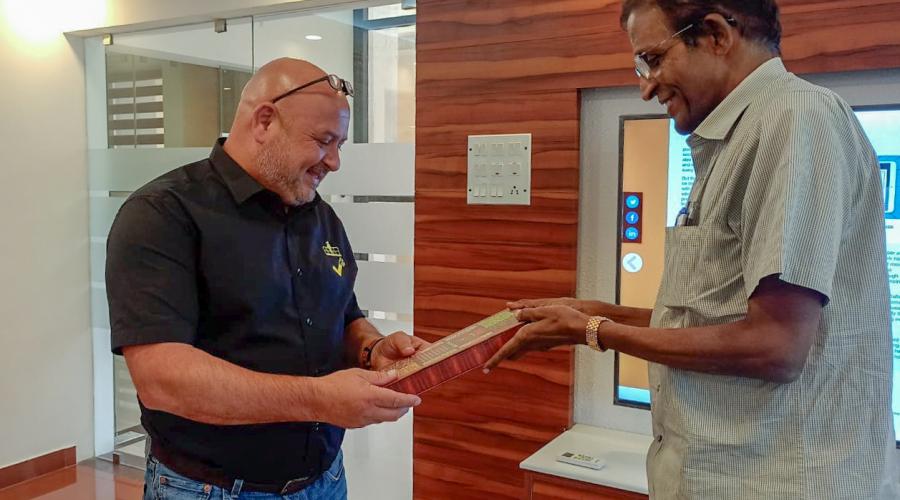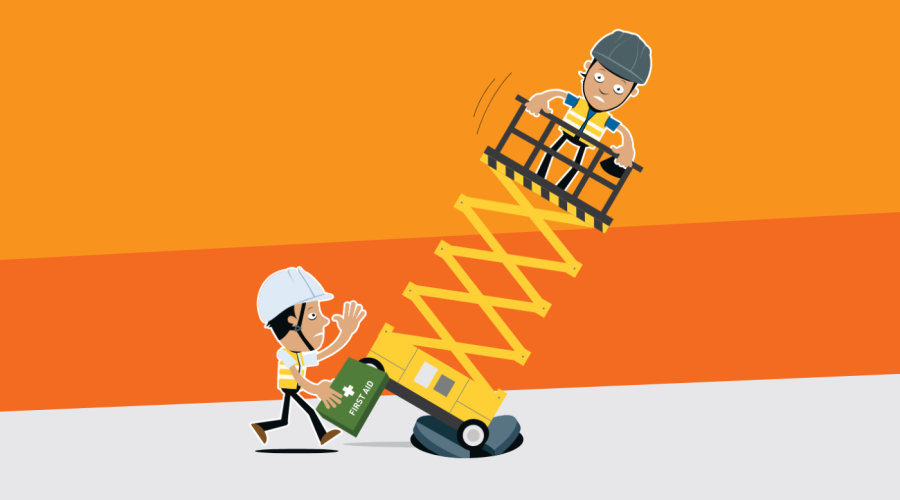IPAF works with Kerala chapter to spread India safety message

An agreement between the International Powered Access Federation (IPAF) and a local chapter of the National Safety Council of India will see the two organisations work together in the state of Kerala to spread awareness about key risks and mitigations when using mobile elevating work platforms (MEWPs) to work at height.
Jason Woods, IPAF’s Regional Manager for the Middle East & South Asia, recently met with representatives of the Kerala Chapter of India’s National Safety Council to discuss safety standards and the need to promote risk awareness and quality training for operators of powered access.
He says: “It is important for IPAF to collaborate with like-minded safety professionals, and recently it was my pleasure to meet Dr Ramesh VM, Honorary Secretary of the National Safety Council, Kerala Chapter. One of India’s leading safety associations, the National Safety Council (NSC) of India was founded in 1966, and hosts 17 individual chapters throughout India. The NSC’s Kerala Chapter was founded in 1970, to promote education on safety-related topics under the mantra ‘safety touches everyone’.
“Our conversations were set around understanding where we currently are with safety standards in this region – not surprisingly, falls from height were a key topic of our discussion. Falls from height pose a risk factor to many workers locally, especially as they are often sent to work with almost zero fall-protection equipment. However, local NSC members are making ongoing efforts to prevent these common risk factors. Training programmes are also being initiated by NSC to address safety concerns.
“As times change and equipment advancements are made, there is a sense of real optimism that working together in this way IPAF and the NSC can make a real difference and that clear steps to fostering safe working conditions will be put in place. “MEWPs are increasingly being used to conduct work at height in Kerala – as across India – and so it is also very important to encourage quality training of operators to all managers and planners of work at height using this equipment.
“IPAF will be supporting the NSC in every way possible, starting with the mutual promotion of IPAF’s quality training across the region, and sharing our free-to-download safety and technical guidance, including IPAF’s series of Andy Access awareness posters and Toolbox Talk workplace safety briefings to all NSC members.
“IPAF continues to emphasise the importance of all users of MEWPs to adhere to acknowledged safety procedures including thorough planning and risk assessment, quality training, equipment familiarisation and safe systems of work. We look forward to working together in productive collaboration with partners such as the NSC Kerala Chapter to spread awareness of risks and key measures to mitigate them.”
● To find more information about the full range of IPAF safety resources see www.ipaf.org/resources and visit www.ipaf.org/training to find out more about the full range of IPAF courses available and find a certified IPAF Training Centre near you.
